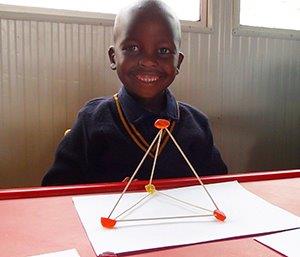Latest News Archive
Please select Category, Year, and then Month to display items
14 June 2024
|
Story Anthony Mthembu
|
Photo Suplied
 Jeremiah Hlahla, a UFS student completing his PhD in Botany at the University of Debrecen as part of an exchange initiative funded by the Erasmus+ Mobility Programme.
Jeremiah Hlahla, a UFS student completing his PhD in Botany at the University of Debrecen as part of an exchange initiative funded by the Erasmus+ Mobility Programme.
As part of an exchange initiative facilitated by the Erasmus+ Mobility Programme, Jeremiah Hlahla, a student at the University of the Free State (UFS), is nearing the completion of his PhD studies at the University of Debrecen in Hungary. Hlahla’s journey, which began in February 2024 and is set to conclude in July 2024, has been a remarkable learning opportunity. “As a first time-traveller to Europe, I have thoroughly enjoyed engaging with people from different countries and cultures,” he said.
The benefits of international collaboration
Hlahla is currently pursuing a PhD in Botany, focusing on plant stress physiology. “My current PhD project investigates the physiological, biochemical and morphological responses of vegetable-type soybean, or edamame, to combined drought and heat stress,’’ he explained. He considers the University of Debrecen the ideal institution to complete his research due to its extensive expertise and resources in similar projects. He noted that his colleagues at Debrecen conduct significant work on plant protection against biotic and abiotic stresses, including salt and drought stress, as well as proteins and amino acids in barley and other legumes.
Given the vast knowledge available on similar projects, Hlahla has found substantial engagement with his work at the University of Debrecen. “Upon arrival, I delivered an introductory lecture presenting my UFS project on the synergistic effects of combined drought and heat stress on the physiology and biochemistry of edamame. It was an engaging session as everyone could relate to my work and asked many questions,’’ he said.
Insights gained from the exchange
Hlahla has also gained valuable lessons that will assist him in his research career, including biotechnology and physiology tools. “I learned how to prepare samples and use high-performance liquid chromatography (HPLC) and reversed-phase ultra-high-performance liquid chromatography (UHPLC) to quantify proteins and amino acids,’’ he said. These techniques are beneficial not only for his current work but will also support future soybean research.
As his experience at the University of Debrecen nears its end, Hlahla reflects on the collaborations and friendships he has formed, which stand out as a significant highlight.
Science 4Fun, collaboration between CUT and UFS community engagement
2017-08-16

For Grade R learners at Nzame Primary, their
basic Geometry insight about shapes advanced
to engineering skills when they built modern pyramids,
connecting jelly sweets and sosatie sticks.
Photo: Supplied
Any phase in a learner’s life can be the right time to explore science. As for Grade R learners at Nzame Primary School in Mangaung, it all started when their Deputy Principal, Charles Busack, attended the Global University for Lifelong Learning (GULL) workshop coordinated by the university’s Community Engagement in October 2016. The GULL network enables its affiliated organisations to recognise the individual and collective efforts of those who are creating progressive transformation in communities and in the workplace. Consequently, a community-based initiative, Science4Fun, was developed and launched at the primary school, where learners would start to experiment with science through play.
University students instrumental in teaching
Every Tuesday morning, these fun science activities form part of the foundation phase programme, in which Dr Elizabeth Conradie of the Central University of Technology (CUT) and four postgraduate Science students from the UFS, engage teachers and learners in exciting experiments and demonstrations.
Most people just know pyramids as big, impressive structures built a long time ago in Ancient Egypt. However, for Grade R learners at Nzame Primary, their basic Geometry insight about shapes advanced to engineering skills when they built modern pyramids, connecting jelly sweets and sosatie sticks.
Laying a foundation for the future
According to Dr Conradie, more fun exercises are lined up for curious minds, exploring other sciences such as Chemistry and Mathematics, combined with music. The initiative will assist to equip learners with the basics of Science into more advance learning phases of the schooling years, giving them an advantage.